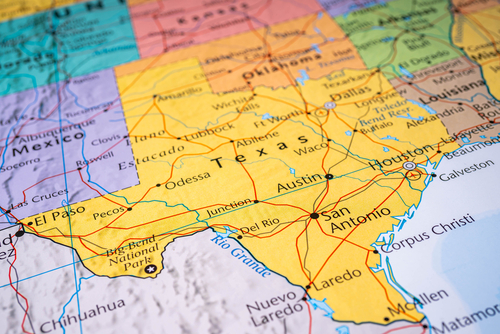The South is more than just a region, it’s a culture with its own language, rituals, and rhythms that can feel downright foreign to anyone not raised in it. It’s a place where politeness is an art form, time moves slower, and traditions are preserved like family heirlooms. From the way people speak to how they host funerals, drink their tea, or dress for football games, Southern customs often defy logic but overflow with meaning. These aren’t just quirky habits, they’re woven into the identity of millions who grew up with porches, sweet tea, and “yes ma’am.”
For outsiders, it can be a confusing experience. Why is everyone calling soda “Coke”? Why are people monogramming their mailboxes? Why does “bless your heart” feel like both a hug and a slap? It’s not about making sense, it’s about making you feel at home, whether that means feeding you three kinds of pie at a funeral or offering you a cold glass of sweet tea on a 100-degree day. Southern traditions are wrapped in warmth and wit, with a little bit of mystery, and that’s exactly what makes them so enduring. Let’s explore 18 of these customs that tend to bewilder newcomers but are sacred gospel below the Mason-Dixon line.
Saying “Bless Your Heart” Can Mean Anything

At first, “bless your heart” sounds like the kind of thing a kindly grandmother might say when you sneeze. But in the South, this deceptively sweet phrase comes with layers. Yes, it can be sincere. If you’re going through something tough, someone might genuinely bless your heart. But most of the time? It’s a polite way to call you clueless, foolish, or downright ridiculous, without raising their voice. It’s passive-aggression in pearls and lipstick. Outsiders often walk away thinking they’ve been comforted when, in reality, they’ve just been roasted. In Southern social circles, knowing how to decode “bless your heart” is a survival skill.
Calling Every Soda a “Coke”

Imagine walking into a Southern diner and ordering a Coke, only to be asked, “What kind? Sprite or Dr Pepper?” That’s not a mistake. In many Southern states, “Coke” has become the generic term for all sodas. It’s not about brand loyalty, it’s linguistic legacy. Coca-Cola’s roots in Georgia helped turn “Coke” into the go-to word for soft drinks of any variety. Outsiders often think it’s a misunderstanding or a mistake, but in the South, ordering a “Coke” doesn’t guarantee you’ll be sipping something cola-flavored. It just means you’ve entered an entirely different soda language.
Obsessive Weather Small Talk

In the South, talking about the weather isn’t small talk, it’s social glue. Whether it’s 100 degrees in the shade or raining sideways, Southerners always have something to say about it. But this goes beyond just noting the forecast. There are colorful phrases like “hotter than a goat’s butt in a pepper patch” or “cold enough to freeze the balls off a brass monkey.” These expressions aren’t just for fun, they’re regional shorthand for connection. Weather talk opens conversations, diffuses tension, and communicates local wisdom. Outsiders might see it as filler, but in the South, it’s a form of hospitality.
Monogramming Everything

If it’s got a flat surface, it’s getting a monogram. Southerners love putting their initials on anything and everything, towels, tote bags, stationery, cell phone cases, you name it. It’s a cultural mash-up of tradition, fashion, and ownership. Monograms are often passed down through families, and for many, they’re as important as a signature. Outsiders often see it as over-the-top or needlessly decorative, but for Southerners, it’s about legacy. It’s not just a name, it’s who you are, stitched in cursive, front and center. In the South, monograms aren’t flashy, they’re expected.
Dressing Up for Football Games
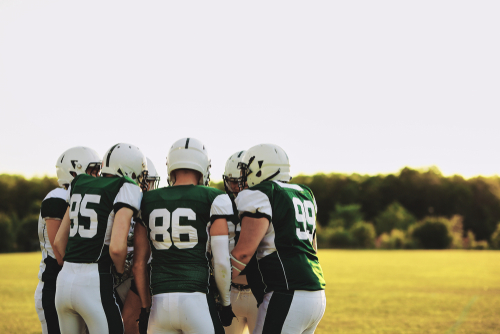
To most people, a football game means jeans, sneakers, and a team jersey. But in the South, particularly around college football powerhouses, game day is a fashion show. Women show up in dresses and cowboy boots. Men wear polos, khakis, and sometimes ties in school colors. Tailgating feels like a wedding reception with coolers. This isn’t casual fandom, it’s social tradition with a side of competition. Outsiders in hoodies and ball caps often feel wildly underdressed. Southern football is as much about pride and community identity as it is about the sport itself. And yes, appearance matters.
Obsession With Ice in Drinks

Southerners don’t just like cold drinks, they demand ice in everything. Sweet tea isn’t complete unless it’s nearly overflowing with ice cubes. Even water or soft drinks in the winter months must come “on the rocks.” It’s partly about the heat, Southern summers are brutal, but it’s also a cultural preference for maximum refreshment. Some people even freeze lemonade or coffee into cubes for extra chill. Outsiders used to sipping room-temperature water often feel like they’re crunching more than they’re drinking. But in the South, a drink without ice is considered unfinished, if not outright wrong.
Waving at Strangers From the Car

Driving through the South, don’t be surprised if strangers give you a nod, a smile, or the famous “steering wheel wave.” This casual lift of the fingers, sometimes just a subtle flick of two or three, is an unspoken code of friendliness. Whether you’re on a rural dirt road or a neighborhood street, this gesture is expected, not optional. Outsiders might wonder, “Do I know them?” The answer is no, and it doesn’t matter. The wave isn’t about familiarity, it’s about community. Not returning the gesture can label you as standoffish or, worse, rude. In Southern driving etiquette, a little wave goes a long way.
Funeral Food Is a Full Feast
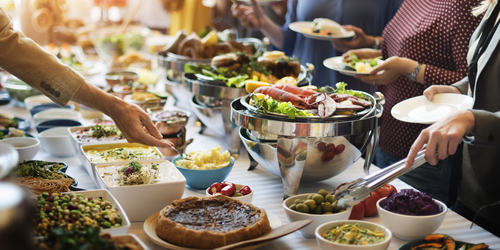
In the South, when someone dies, you don’t just send flowers, you show up with food. And not just any food: we’re talking full casseroles, trays of deviled eggs, ham biscuits, banana pudding, and gallons of sweet tea. This isn’t just a nicety; it’s an unwritten rule of Southern mourning. The tradition comes from deep-rooted beliefs about caring for the grieving through nourishment and presence. Outsiders might find it overwhelming or oddly festive, but within Southern culture, it’s one of the most heartfelt ways to show support. A good funeral meal is a tribute, and a comfort that says, “You’re not alone.”
Read More: American Habits That May Offend Abroad
Calling Everyone “Ma’am” and “Sir”

From preschoolers to grown adults, Southern kids are raised to say “yes ma’am” and “no sir” as a sign of respect. It doesn’t matter if the person is young, old, friend, or stranger, manners matter. Outsiders often misinterpret it as subservience or over-politeness, but in the South, these titles are about upbringing and courtesy. A child who skips the “ma’am” might be seen as disrespectful, even if they’re being perfectly polite by other standards. This custom also creates confusion in work settings, where “sir” and “ma’am” can make supervisors feel ancient. But in the South, it’s never meant to offend, t’s meant to honor.
Sunday Is Still Sacred

In many parts of the South, Sunday is more than a day, it’s a whole vibe. The morning starts with church, followed by a big home-cooked meal (often involving fried chicken, biscuits, and at least two kinds of pie), and the rest of the day is devoted to rest. Businesses in small towns may close early or not open at all. To outsiders used to 24/7 convenience, this can feel like a time warp. But for Southerners, it’s about slowing down, spending time with family, and resetting for the week ahead. Sunday isn’t just part of the weekend, it’s a ritual of reverence and rhythm.
Fixing to Do Something

“Fixin’ to” is one of those Southern expressions that baffles non-Southerners. It means “about to,” but in practice, the timeline is flexible. “I’m fixin’ to go to the store” could mean you’re grabbing your keys, or it might mean you’ll get around to it in an hour, maybe longer. There’s no rush implied, just intent. It’s an example of how Southerners manage time with less rigidity and more ease. For those unfamiliar, it can sound vague or even passive. But locals understand that “fixin’ to” is a verbal cushion that softens action with a little charm and a lot of leeway.
The Deep-Fried Everything Culture
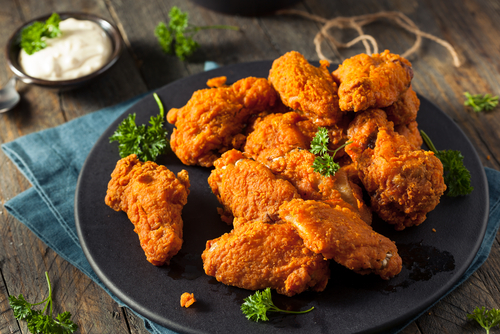
In the South, the frying pan reigns supreme. You name it, okra, green tomatoes, chicken, catfish, pickles, even Oreos, and there’s a deep-fried version of it. This isn’t just about indulgence; it’s culinary tradition. Fried food has long roots in both African-American and Southern rural cooking, where it was practical, flavorful, and easy to feed a crowd. Outsiders often raise an eyebrow at the calorie count, especially when they spot deep-fried butter at the county fair. But in the South, frying is more than a cooking method, it’s an expression of joy, creativity, and comfort. Crispy equals celebration.
The Peculiar Love for College Greek Life

Greek life in the South isn’t a phase, it’s practically a birthright. Sororities and fraternities are more than clubs; they’re social institutions with deep family ties and powerful alumni networks. College campuses host elaborate recruitment weeks that feel like pageants, and the involvement doesn’t end at graduation. Many Southern towns revolve around the social calendar of the local university’s Greek system. Outsiders from states where Greek life is low-key, or nonexistent, often struggle to understand the intensity. But in the South, being a legacy, wearing your letters, and attending alumni mixers decades later is a source of lasting pride and status.
Double First Names Are a Thing

If you hear someone introduce themselves as “Mary Beth,” “Billy Ray,” or “John Michael,” don’t assume you’re hearing a first name and a middle name. In the South, that’s the whole first name, double-barreled and non-negotiable. It’s a tradition rooted in both family honor and Southern rhythm. Sometimes it honors multiple relatives, sometimes it’s just because it sounds good. But say only half the name and you’re guaranteed a correction. Outsiders might find it a mouthful or think it’s old-fashioned, but down South, double names are a source of pride. They roll off the tongue like sweet tea at a Sunday picnic.
Mason Jars for Everything
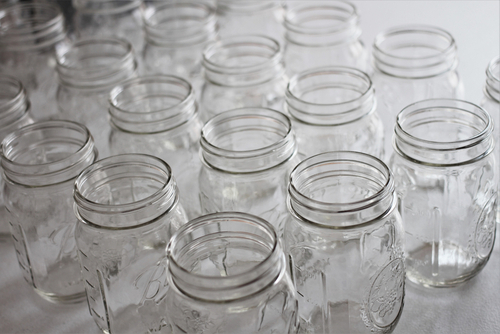
In the South, Mason jars aren’t just for preserving jam or storing moonshine, they’re a lifestyle item. You’ll find them used as drinking glasses, vases, candle holders, storage containers, soap dispensers, and even light fixtures. Restaurants serve sweet tea in them. Brides use them in centerpieces. Farmers still use them the traditional way. For many Southerners, they’re not a novelty, they’re practical, nostalgic, and versatile. Outsiders might think Mason jars are just part of a Pinterest trend, but Southerners know these jars predate Pinterest by over a century. They symbolize self-sufficiency, family heritage, and good taste, literally and figuratively.
Sweet Tea Is Practically a Food Group

In the South, sweet tea isn’t just a drink, it’s a birthright. It’s served at breakfast, lunch, dinner, and everything in between. The ratio of sugar to tea would make some Northerners’ teeth ache, but to Southerners, anything less isn’t real sweet tea. It’s brewed strong, sweetened while hot, and chilled until ice-cold. Restaurants automatically serve sweet unless you specify otherwise. Outsiders are often shocked to learn that “unsweet tea” has to be specially requested, and may come with a side of side-eye. In some homes, sweet tea is made in gallon jugs and stored like milk. It’s that essential.
Front Porch Sitting
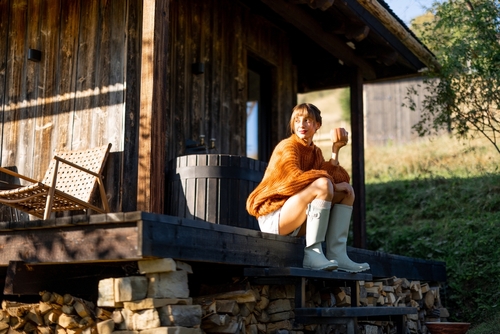
To non-Southerners, sitting on the front porch might sound like doing nothing. But to Southerners, it’s doing everything. It’s where you sip your sweet tea, catch up with neighbors, watch the kids play, or just sit and think. Porch sitting is about slowing down and staying connected, to the land, the community, and yourself. Rocking chairs, porch swings, and ceiling fans are all part of the ritual. Outsiders who are used to more private or fast-paced lifestyles may struggle to grasp the appeal of simply sitting outside. But in the South, the porch is where stories are told, bonds are formed, and life feels a little lighter.
Yes, There Are Entire Festivals for Peaches and Crawfish
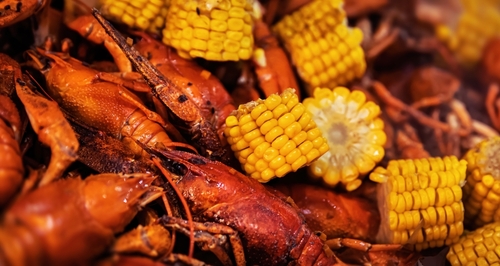
Southern towns can throw a festival for just about anything, grits, watermelon, collard greens, catfish, boiled peanuts. But peaches and crawfish are in a league of their own. Peach festivals in Georgia draw thousands with pageants, parades, pie-eating contests, and farmers showcasing their best fruit. Meanwhile, crawfish boils are major events in Louisiana, Mississippi, and parts of Texas, where tables are piled high with spicy crustaceans, corn, potatoes, and sausage. These aren’t just food parties, they’re social institutions. Outsiders might find the idea of entire events revolving around a fruit or a bug strange, but for Southerners, these festivals celebrate heritage, community, and abundance.
Final Thoughts
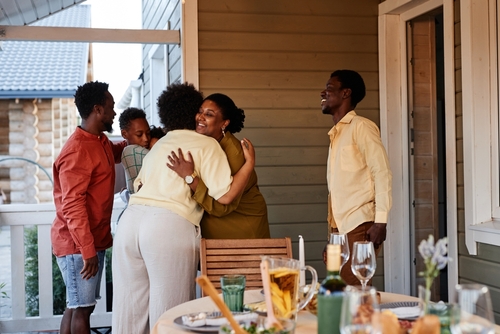
To outsiders, the American South can feel like a world all its owna place where the rules of logic take a backseat to tradition, and everyday life is steeped in slow charm and heartfelt ritual. But beneath every monogrammed cooler, every double first name, and every steaming casserole dish lies something deeper: a fierce devotion to community, heritage, and kindness wrapped in custom. These behaviors may confuse the uninitiated, but they speak volumes about Southern values, respect, loyalty, hospitality, and the belief that even small acts carry big meaning.
Yes, it might be odd to call Sprite a “Coke” or wave at strangers like they’re cousins, but in the South, these things aren’t odd, they’re anchors. They connect people across generations and neighborhoods, turning routines into rituals and strangers into friends. Whether you’re sipping sweet tea on a porch swing or dodging a backhanded “bless your heart,” remember: these traditions aren’t meant to be decoded. They’re meant to be lived, one iced drink, one football tailgate, one casserole at a time.
You don’t have to understand Southern customs to respect them. But spend enough time down here, and don’t be surprised if they start making a little more sense, and maybe even start feeling like home.
Read More: 41 American Brands – 20 Still Made in the USA, 21 That Aren’t
